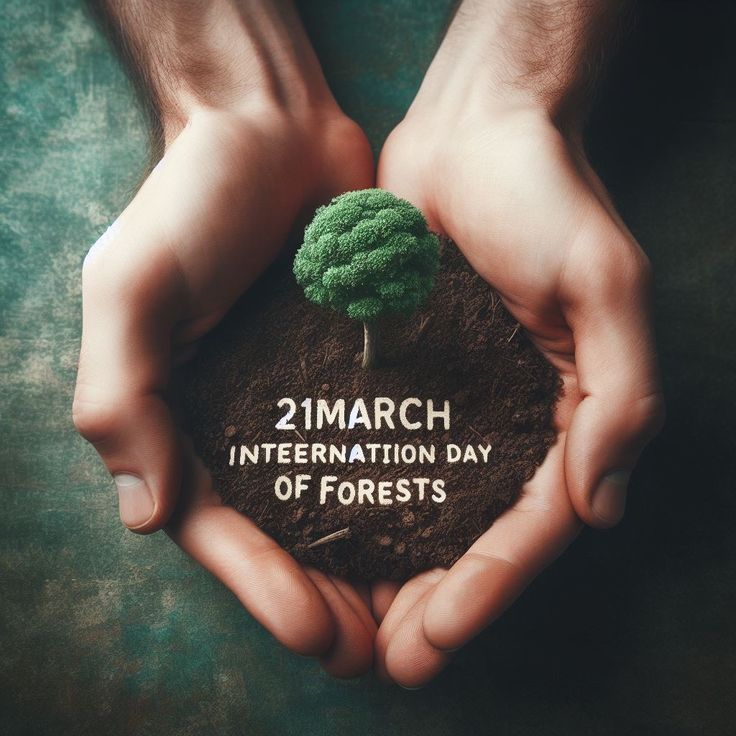🌲 International Day of Forests: 7 Eye-Opening Truths That Will Restore Your Hope in Nature
Date Observed: March 21 every year
- 📜 History of the International Day of Forests
- 📆 Timeline: Key Moments
- 🌍 7 Astonishing Facts About Forests
- ❓FAQs: International Day of Forests
- Q1: Why is March 21 chosen for International Day of Forests?
- Q2: Who organizes the observance?
- Q3: How is it celebrated globally?
- Q4: Are tropical forests the only concern?
- Q5: What can I do personally?
- 🎯 Significance of International Day of Forests
- 🌿 Global Observance & Celebrations
- 💬 Wishing Messages for the International Day of Forests
- 🔍 Key Takeaways
- 💚 Daily Life Impact of Forests
- 🧭 Importance in Our Lives and Society
- ⚠️ Challenges That Still Exist
- 📢 What YOU Can Do
- 🔚 Conclusion: A Greener Future Starts with Awareness
In a world increasingly disconnected from nature, the International Day of Forests (IDF) is more than a calendar observance—it’s a global call to action. This powerful day reminds us of the unmatched value forests bring to our health, economy, environment, and future generations.
Forests are the lungs of the Earth, the guardians of biodiversity, and natural climate warriors. They are not only home to more than 80% of terrestrial species but are also vital to human survival. This article dives into the history, impact, significance, and daily life relevance of this important day—with a tone that’s personal, warm, and filled with truth.
📜 History of the International Day of Forests
The idea of dedicating a day to forests is relatively recent in international dialogue:
1971: The State of Forests began being recognized through World Forestry Day established by the FAO.
2012: The United Nations General Assembly officially declared March 21 as the International Day of Forests.
2013 onward: The day has been celebrated globally, with a new theme each year to highlight a specific aspect of forests.
It was born from a pressing need to highlight forest degradation, deforestation, and their implications on climate change and human welfare.
📆 Timeline: Key Moments
| Year | Event |
|---|---|
| 1971 | World Forestry Day initiated by the FAO |
| 2011 | UN declared the “International Year of Forests” |
| 2012 | UN General Assembly declared March 21 as IDF |
| 2013 | First International Day of Forests celebrated |
| 2020 | Focus on Forests and Biodiversity |
| 2023 | Theme: “Forests and Health” |
| 2025 | Theme expected: “Forests and Water Security” (tentative) |
🌍 7 Astonishing Facts About Forests
Forests cover 31% of Earth’s land area
That’s approximately 4.06 billion hectares—but it’s shrinking rapidly.1.6 billion people depend directly on forests
For food, shelter, medicines, and livelihoods.Forests absorb nearly 2.6 billion tons of CO₂ each year
Making them essential to combating climate change.More than 75% of the world’s freshwater comes from forested watersheds
Over 50% of global biodiversity lives in forests
Forest loss contributes to nearly 20% of global greenhouse gas emissions
The Amazon produces 20% of the Earth’s oxygen
❓FAQs: International Day of Forests
Q1: Why is March 21 chosen for International Day of Forests?
It aligns with the vernal equinox in the Northern Hemisphere, symbolizing rebirth, balance, and growth—much like forests themselves.
Q2: Who organizes the observance?
Primarily coordinated by the United Nations Food and Agriculture Organization (FAO), with participation from environmental NGOs and governments worldwide.
Q3: How is it celebrated globally?
Through tree-planting drives, public awareness events, school programs, forest cleanups, policy discussions, and social media campaigns using hashtags like #IntlForestDay.
Q4: Are tropical forests the only concern?
Not at all. Boreal, temperate, and mangrove forests all play crucial roles in regulating the planet’s climate and biodiversity.
Q5: What can I do personally?
Plant trees, reduce paper and wood waste, support reforestation projects, and educate others about forest conservation.
🎯 Significance of International Day of Forests
The IDF stands as a beacon of environmental awareness and action, addressing:
🌱 Climate change mitigation
🧬 Biodiversity protection
💧 Water purification
💊 Medicinal resources
🏡 Livelihood and shelter for indigenous populations
It gives policymakers, environmentalists, students, and ordinary citizens a common platform to advocate for nature’s most vital ecosystem.
🌿 Global Observance & Celebrations
Countries across the globe celebrate the International Day of Forests uniquely:
India: Hosts Van Mahotsav and tree plantation drives in schools.
Brazil: Celebrates with Amazon protection campaigns and indigenous leadership summits.
Canada: Focuses on boreal forest sustainability and climate impact.
Kenya: Runs reforestation efforts in degraded savannah areas.
💬 Wishing Messages for the International Day of Forests
🌳 “On this International Day of Forests, let us grow together by growing trees.”
🌲 “A world without forests is a world without life. Plant hope. Plant trees.”
🍃 “From oxygen to rain, forests give us everything. Let’s give back.”
🌿 “Celebrate green life. Nurture the Earth. Protect our forests.”
🌱 “Every tree counts. Make your count this Forest Day!”
🔍 Key Takeaways
Forests are vital to life on Earth, regulating climate, water, and biodiversity.
Deforestation is still rampant, especially in tropical zones like the Amazon and Congo Basin.
Restoration and conservation efforts need global collaboration.
Individual actions matter—from planting trees to changing consumption habits.
Policies must prioritize green economy, sustainable forestry, and reforestation.
💚 Daily Life Impact of Forests
🌧️ Climate Regulation:
Forests are rainmakers. They absorb carbon and release moisture, which contributes to rainfall patterns and keeps global warming in check.
🧴 Products We Use:
From paper, soap, rubber, oils, and fuel, most daily-use items are forest-derived.
💊 Health Benefits:
Over 25% of medicines come from forest plants. Aspirin, for instance, was originally derived from the willow tree.
👨👩👧👦 Human Well-being:
Green spaces reduce stress, anxiety, and support mental well-being. Access to forests improves quality of life, especially in urban settings.
🧭 Importance in Our Lives and Society
Economic Sustainability: Forest-based economies support millions—from timber to eco-tourism.
Spiritual Connection: In many cultures, forests are sacred spaces of worship and healing.
Cultural Identity: Indigenous tribes around the world are forest dwellers; their traditions, knowledge, and existence rely on forests.
Environmental Balance: Forests keep air clean, protect soil, and maintain biodiversity.
Disaster Prevention: Forests reduce the impact of natural disasters like floods and landslides.
⚠️ Challenges That Still Exist
Rapid urbanization and illegal logging
Weak forest governance and law enforcement
Rising wildfires due to climate change
Misuse of land for agriculture and mining
Lack of awareness and education in forest conservation
📢 What YOU Can Do
Plant and adopt a tree every year.
Go paperless whenever possible.
Join or donate to reforestation NGOs.
Avoid products contributing to deforestation (e.g., unsustainable palm oil).
Educate children about the value of trees and forests.
Advocate for policies supporting climate action and green cover.
🔚 Conclusion: A Greener Future Starts with Awareness
The International Day of Forests is not just about celebrating trees—it’s about recognizing the essence of life itself. Without forests, there is no clean air, no stable climate, no rich biodiversity.
Let this day be a reminder, a movement, and a promise—to live in harmony with nature, plant more than we cut, and protect the lungs of our planet.
Every tree saved, every forest protected, and every person educated brings us closer to a more sustainable, beautiful, and hopeful Earth.








